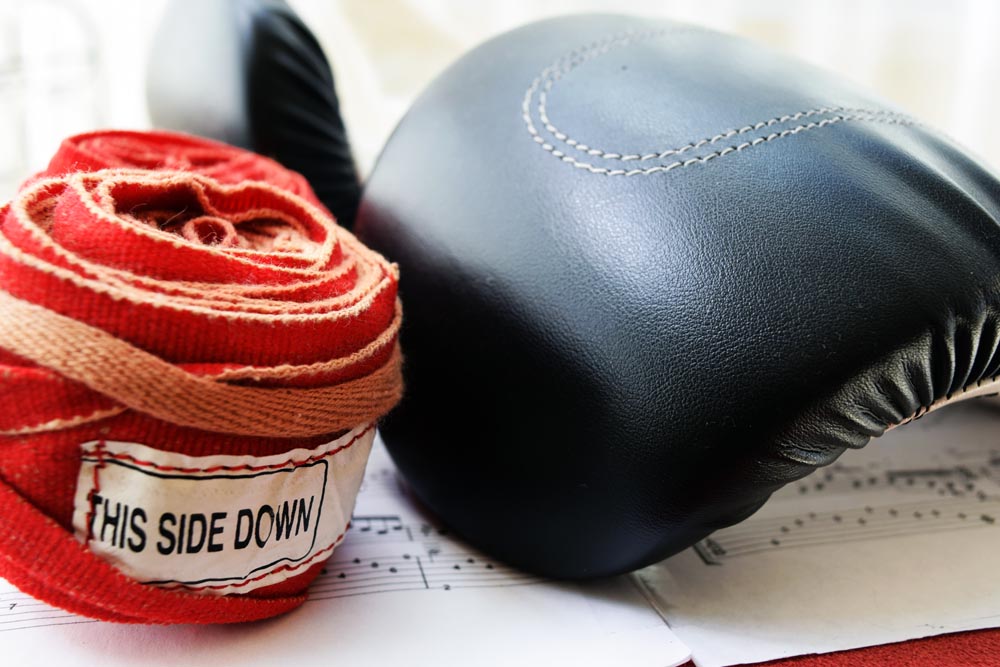This post highlights the intersection of two completely disparate arts: boxing and music; and how delving under the hood of the sweet science has thrown up some interesting connections to the science of learning music.
Shadow boxing with notes
Just recently I finished reading Sam Sheridan’s A fighters Art, a book that details his exploits as he quests to find his centre. About half way through his journey he ends up in Oakland training his boxing skill set with Virgil Hunter and Andre Ward. Questioning why he should shadow box and Virgil’s reply:
Slow works the tendons, the sinews, and it hurts more; but it makes you stronger, gives you power. Speed will come when the mechanics are right.
…got me thinking: isn’t this in essence what musicians do when practicing their movements slowly?
Slowly Does it
At some point in your musical training some one somewhere has introduced you to the idea for practicing slowly. However there is more to this one quote than initially meets the eye, shadow boxing also involves an opponent. In fact it is pointless doing it with out this vital aspect: imagination. Music is exactly the same. Without being able to visualize the note on the fretboard, hear the note off a page or even inside our imagination you are limiting your potential. Music making is not just about playing an instrument. Its about using your brain, to its fullest capacity to play your instrument.
Creative Visualization
Shadow boxing also takes place in front of a mirror, just like practicing an instrument should.
You got to fall in love with yourself in the mirror.
This promotes strong positive mental images about yourself, your ability and ultimately feeds your confidence. More importantly it helps you to focus, on yourself and the mechanics of performing!
Commitment
And finally commitment or the art of falling in love with the routine. Fighters will train everyday for years, working hard on all aspects of their art, bag work, sparring, in isolation, gym training running; the list goes on. All leading up to that next big moment, the next fight. Musicians do the same, practice happened alone, or in groups, we practice before the practice-for the practice. Alone reading scores, listening to music, listening to musicians. Scales, arpeggios, etudes, another endless list of routines.
A forty-year-old fighter works as hard as a ten-year-old does.
You have to approach all of it with the open mindset of a child, embrace it, and fall in love with it-daily. Without that your commitment is always going to waver. Set goals, work towards achieving them one small step at a time but do it daily with love for your art. I will leave the last word to Virgil, as it is true for boxing and it is true for music, in fact I suspect its true for just about anything you want to do to a high standard:
It is easy to become enthusiastic and fall in love with fighting for six months, or a year; but to stay in love, to force yourself into the engine of pain everyday for three years, then five-that’s where the pros separate themselves.
A great book and definitely worth a read, here is a link.
